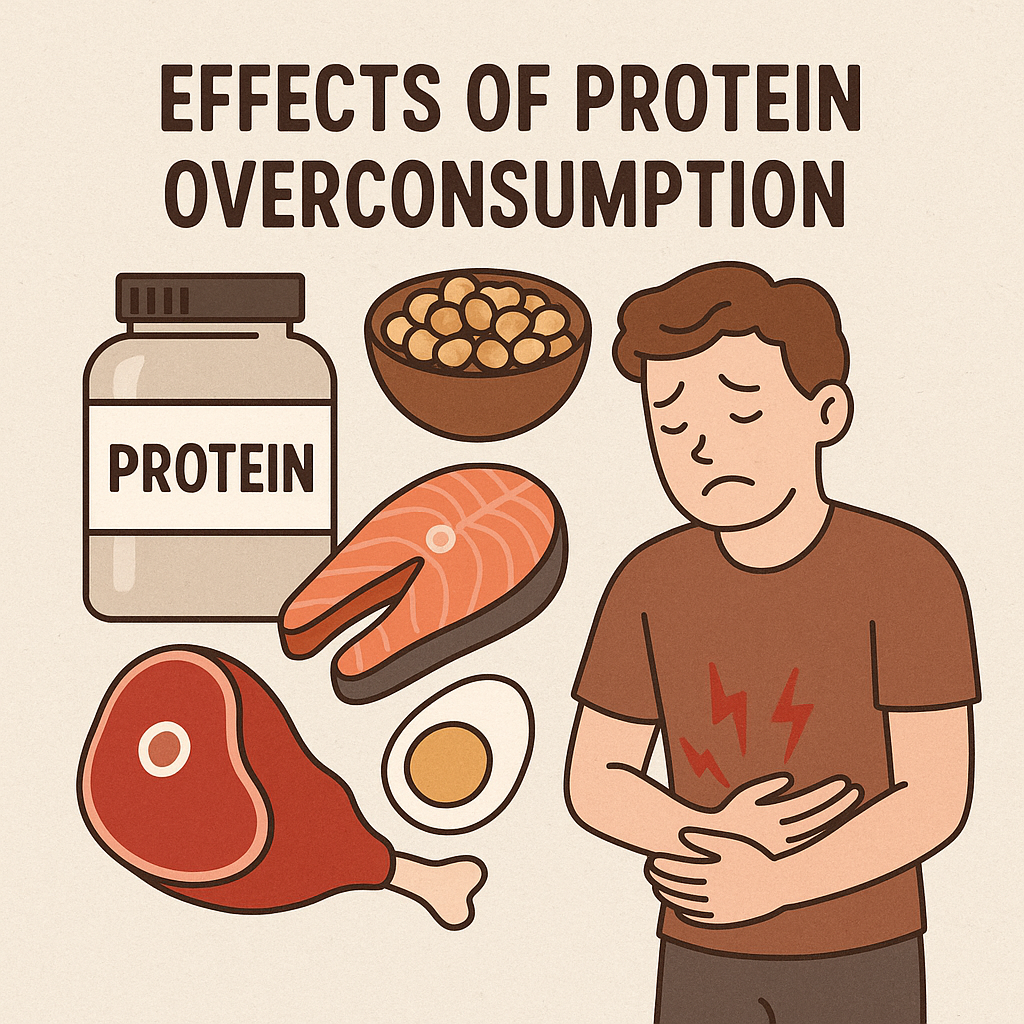
Is Too Much Protein Harmful? Exploring the Effects of Protein Overconsumption on the Body
Share
In the age of fitness culture and high-protein diets, it’s easy to assume that more protein equals better health. While protein is undeniably essential for muscle repair, immune function, and hormone production, excessive consumption may come at a cost—especially when sustained over long periods. Let’s dive into the science behind protein overconsumption and how it may impact your health.
What Happens When You Eat Too Much Protein?
1. Kidney Strain
The kidneys are responsible for filtering waste products of protein metabolism, such as urea. A high-protein diet increases the glomerular filtration rate (GFR), forcing the kidneys to work harder. Although healthy individuals may tolerate this temporarily, research by Friedman (2004) suggests that excessive protein intake could accelerate kidney decline in those with pre-existing renal conditions.
Reference: Friedman AN. (2004). High-protein diets: potential effects on the kidney in renal health and disease. American Journal of Kidney Diseases, 44(6), 950-962. doi:10.1053/j.ajkd.2004.08.023
2. Calcium Loss and Bone Health
Some studies have proposed that high protein intake—especially from animal sources—may increase calcium excretion through urine, potentially affecting bone density. Although this claim is debated, research from Kerstetter et al. (2003) found a link between long-term high-protein intake and increased urinary calcium loss.
Reference: Kerstetter JE, et al. (2003). A review of the effect of dietary protein on bone health. Journal of Nutrition, 133(3), 862S–866S.
3. Digestive Discomfort
A diet heavily focused on protein can often be low in fiber, leading to constipation or digestive imbalance. Additionally, overconsumption of protein powders and supplements may cause bloating, nausea, or diarrhea, particularly in those with lactose intolerance or sensitivities to certain protein sources (e.g., whey or casein).
4. Risk of Heart Disease
Not all proteins are created equal. Diets rich in red and processed meats have been associated with increased cardiovascular risk. A large cohort study by Song et al. (2016) concluded that higher intake of animal protein, particularly red meat, was associated with higher mortality from cardiovascular disease, while plant protein was linked to a lower risk.
Reference: Song M, et al. (2016). Association of animal and plant protein intake with all-cause and cause-specific mortality. JAMA Internal Medicine, 176(10), 1453–1463.
5. Weight Gain from Excess Calories
Although protein can aid in satiety and metabolism, excess protein is still stored as fat when calorie intake surpasses energy expenditure. The body cannot store excess amino acids, so the surplus is either used as energy or converted to fat, contributing to weight gain over time.
Final Thoughts
Protein is vital, but balance is key. For most adults, the Recommended Dietary Allowance (RDA) is about 0.8 grams of protein per kilogram of body weight. For athletes or those undergoing intense physical activity, that number may increase—but blindly overloading on protein could do more harm than good.
